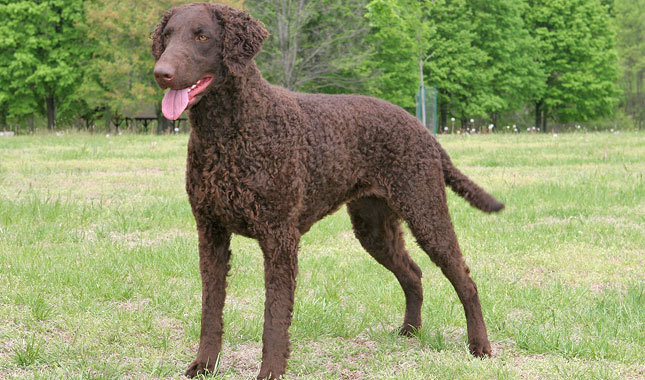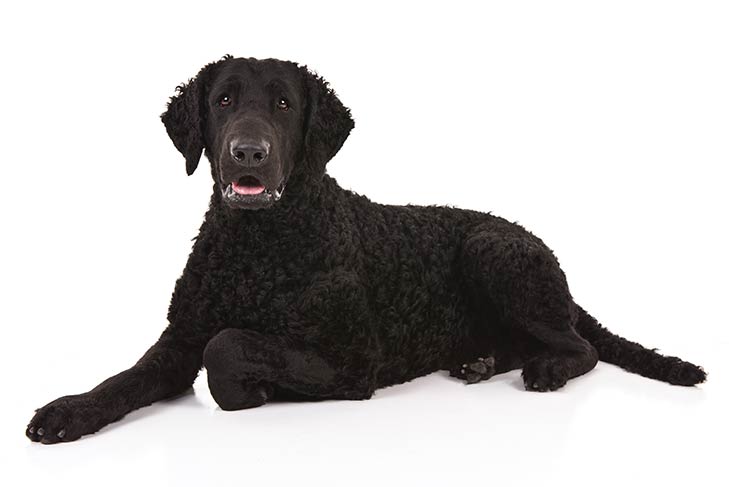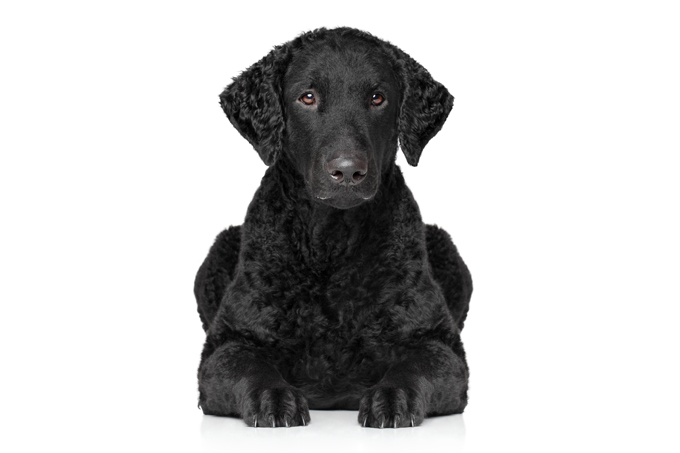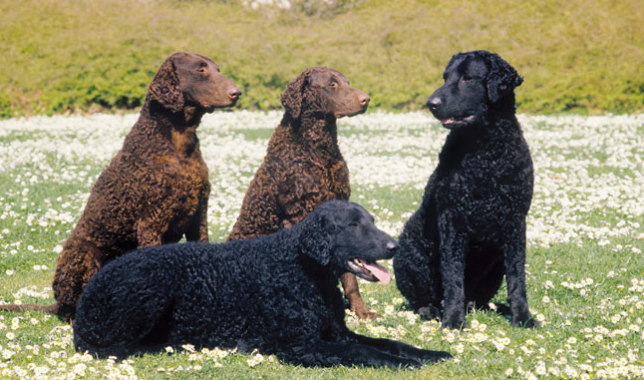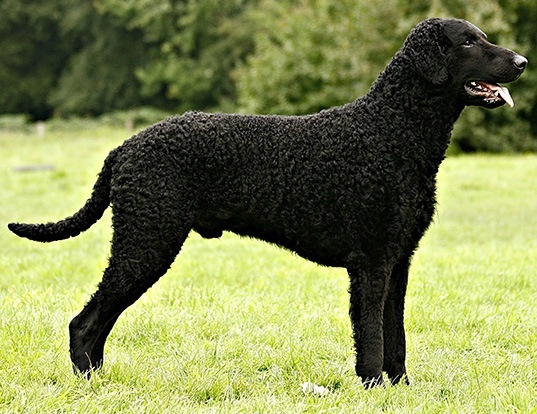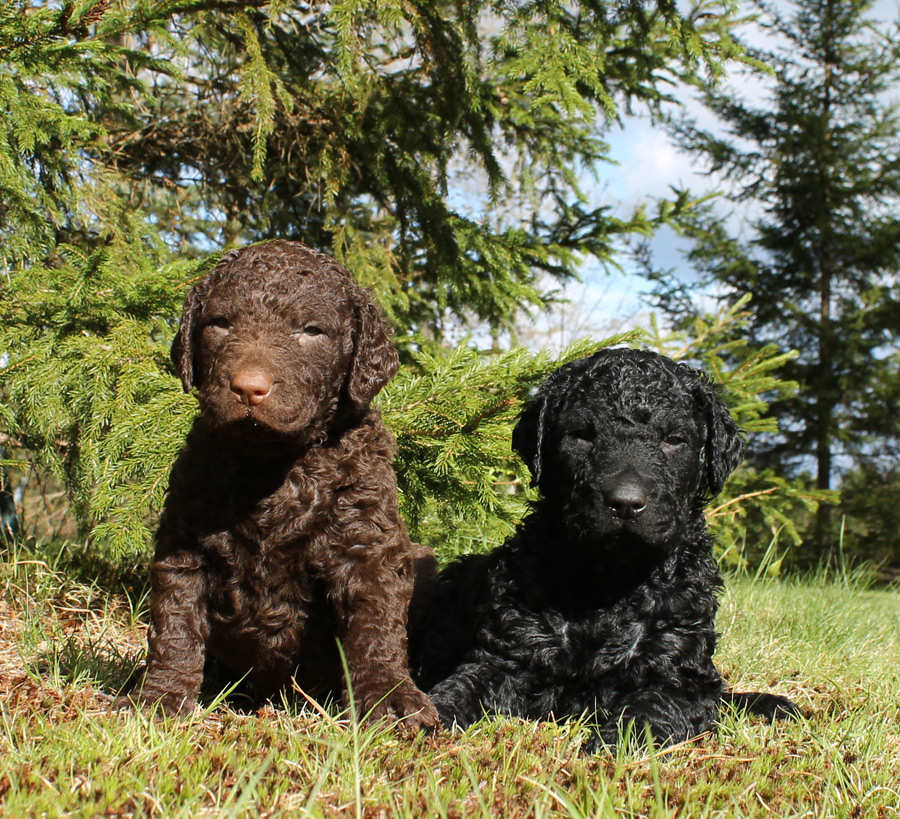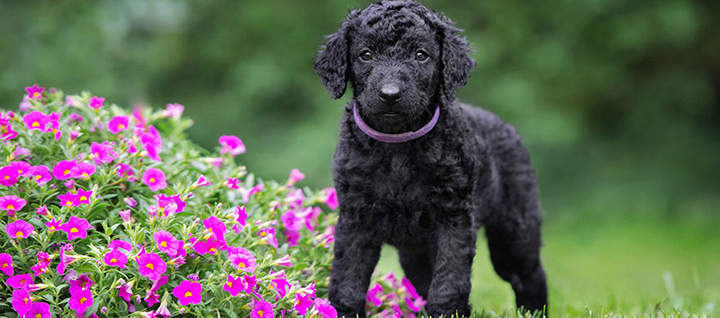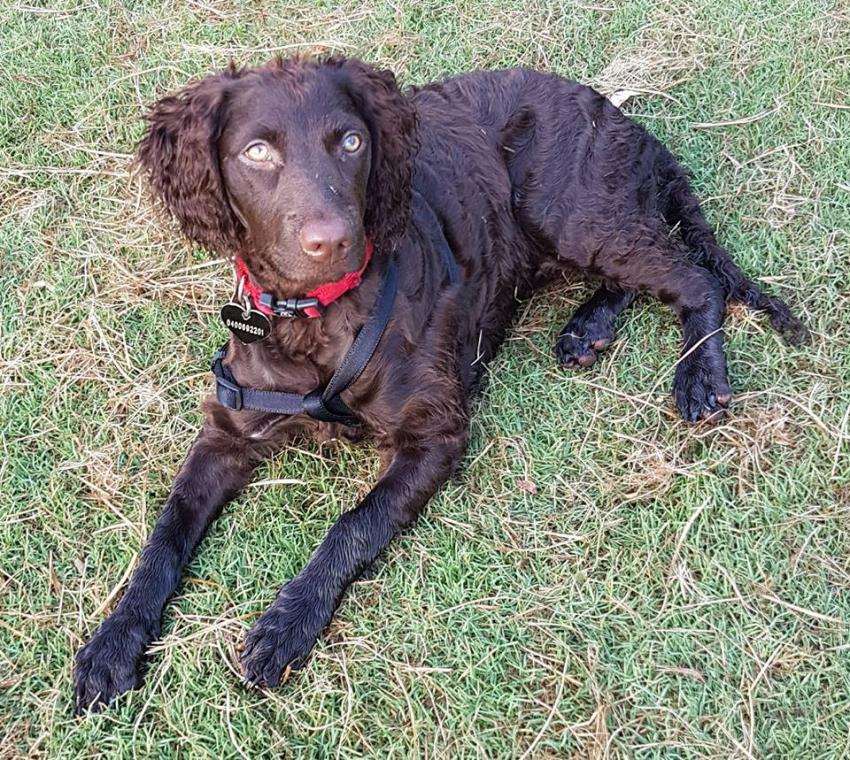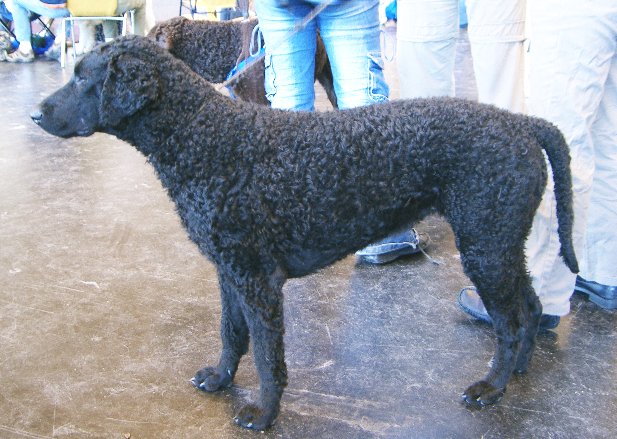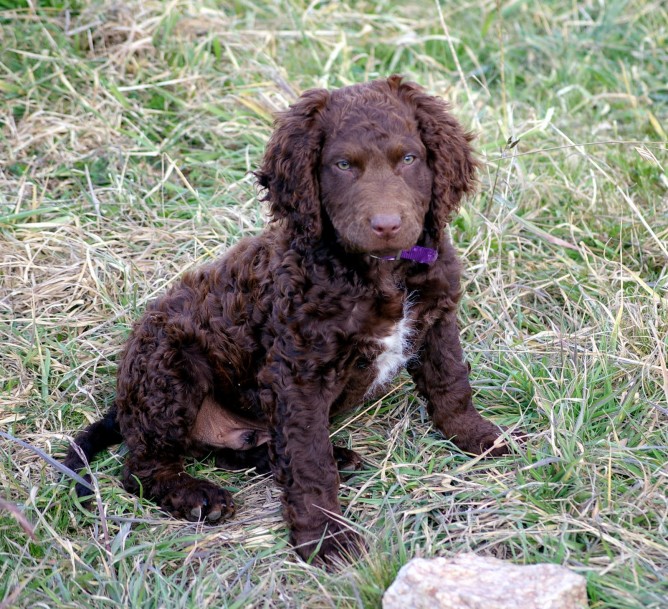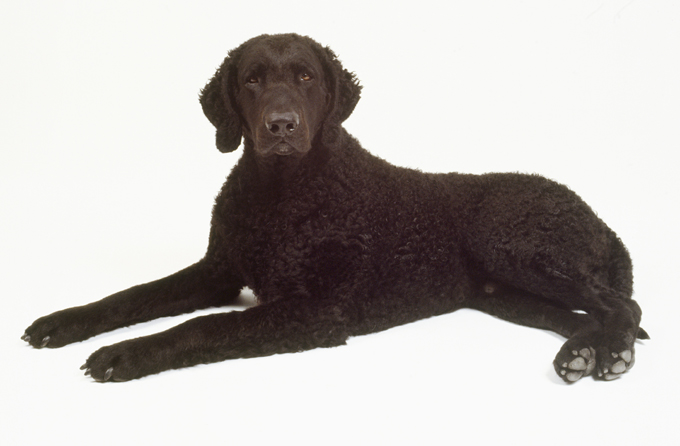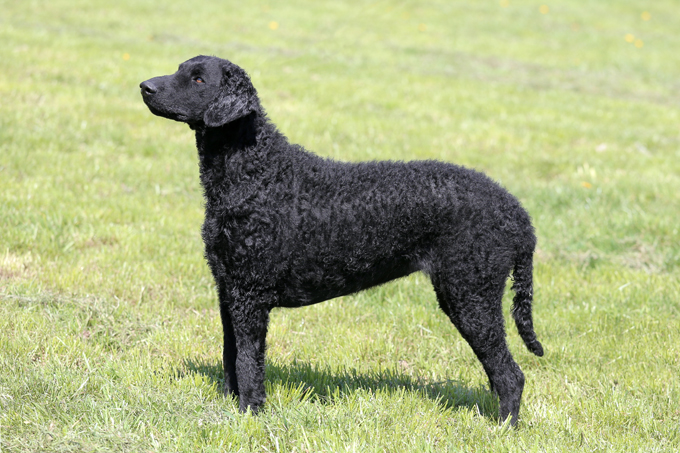Curly-Coated Retriever
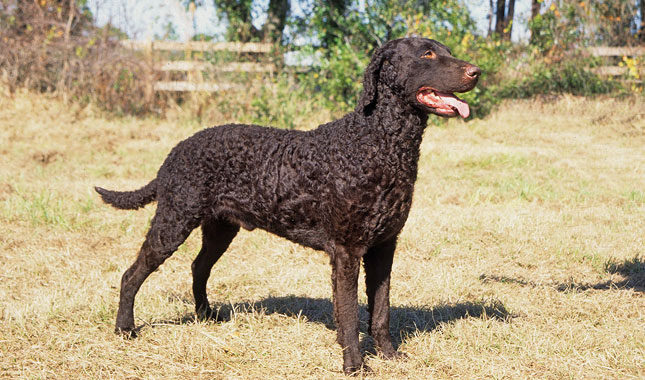
Overview
Curly-coated Retriever was used for retrieving game for hunters from both water and land surfaces. Today it is also used for drug detection, as a therapy dog and in agility and obedience contests.
History
This large dog originates from England. Although it resembles a poodle mixed with retriever that is not the case. Curly-coated Retriever is one of the oldest retrievers. It is still very popular breed in the UK and Australia. This breed dates from 18th century.
Appearance and Temperament
This large breed is slightly bigger than other retriever breeds. Height should be between 64 and 69 centimeters (25-27 inches) for males and 58 to 64 centimeters (23-25 inches) for females. Weight should be corresponding to the height. They are muscular and agile. Thick curly hair repels water and protects the dog.
Their temperament is suitable for hunting, but they can also be great house pets. They are active and need regular exercise. They are very loyal and can be cautious when meeting a stranger.
Mental stimulation is important, so if kept as a pet, owners should have time to play, learn tricks and interact with this dog. They enjoy swimming. Curly-coated Retrievers are very persistent and determined. Also, they tend to act as puppies longer than other similar breeds. They are easy to train but also they can get bored if all exercises are the same.
Children and Curly-coated Retrievers get along well. They also get along with other dogs but socialization is required. If trained properly they can be kept with other, smaller, pets too but keep in mind they are hunting dogs so proper guidance while meeting them is essential. This breed does not like staying home alone, and if lonely and bored they can become restless and can chew items around the house.
Coat and Shedding
Curly-coated Retriever, as the name suggests, has thick and curly black coat that is not too long, and have no undercoat. They shed a lot twice a year. Grooming is necessary. Females shed more than males. Metal grooming tools are the best and haircuts may be required. They do not require baths more than two times per year. Standard brushing tools should be avoided as the coat can get frizzy.
Health and Lifespan
Curly-coated Retrievers are prone to hip dysplasia. Other common problems are epilepsy, cancer and eye issues. Healthy nutrition based on quality dog food is recommended. The average lifespan for Curly-coated Retriever is 8-12 years.
Breed Information
| Popularity: | 2018: #171 2017: #171 2016: #164 2015: #151 |
| Origin: | United Kingdom |
| Breed Group: | Sporting (AKC:1924) Gun Dogs (UKC) |
| Size: | Large |
| Type: | Purebred |
| Life span: | 8-12 years |
| Temperament: | Clever Independent Intelligent Lively Sensitive Trainable |
| Height: | 25-27 inches (63-69 cm) |
| Weight: | 65-80 pounds (29-36 kg) |
| Colors: | Black Liver |
| Litter Size: | 6-8 puppies |
| Puppy Price: | Average $600 - $800 USD |
Breed Characteristics
| Adaptability: |
|
| Apartment Friendly: |
|
| Cat Friendly: |
|
| Child Friendly: |
|
| Grooming: |
|
| Health Issues: |
|
| Intelligence: |
|
| Trainability: |
|
| Watchdog Ability: |
|
Dog names
| Rank | Male | Female |
|---|---|---|
| 1 | Rocky | Sadie |
| 2 | Bentley | Roxy |
| 3 | Riley | Stella |
| 4 | Milo | Penny |
| 5 | Jax | Lady |
| 6 | Hank | Belle |
| 7 | Rusty | Angel |
| 8 | Otis | Marley |
| 9 | Loki | Holly |
| 10 | George | Sandy |
| 11 | Thor | Winnie |
| 12 | Kobe | Grace |
| 13 | Cash | Delilah |
| 14 | Benji | Sassy |
| 15 | Chewy | Nikki |


